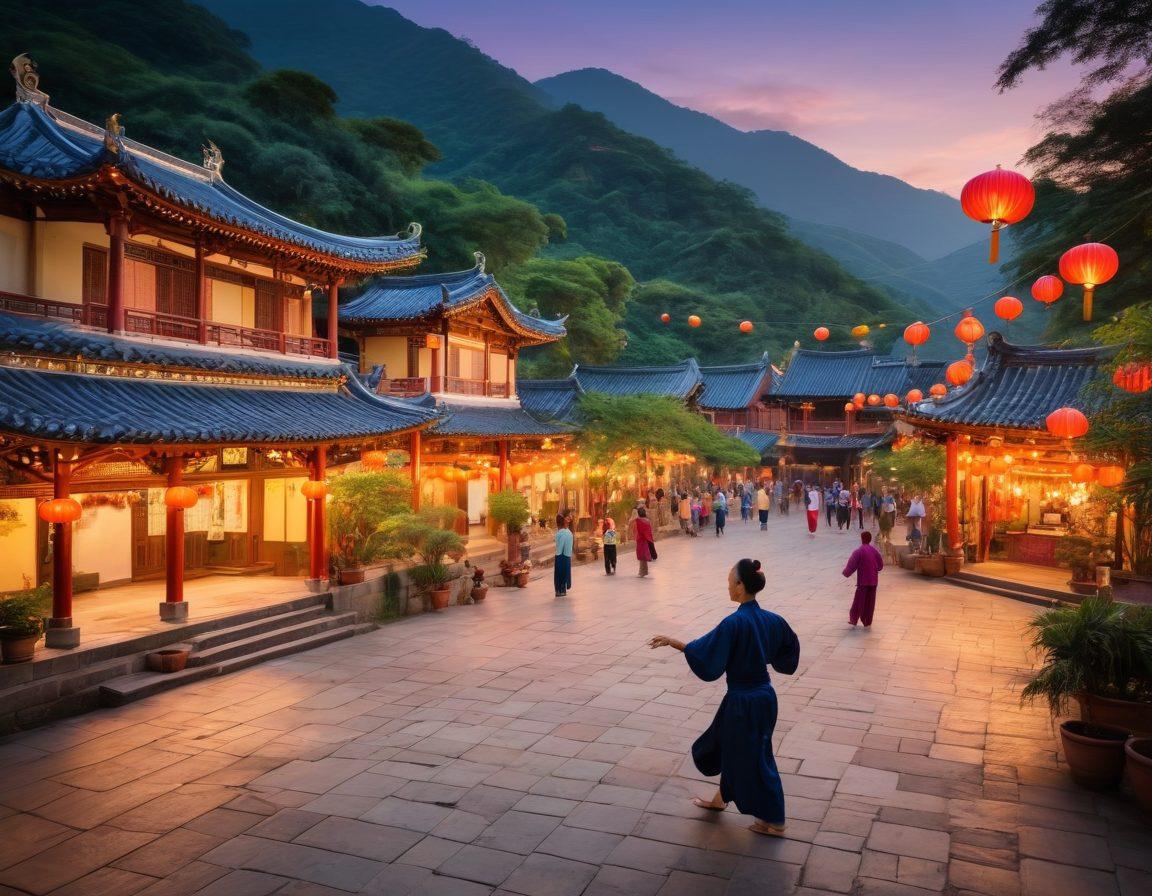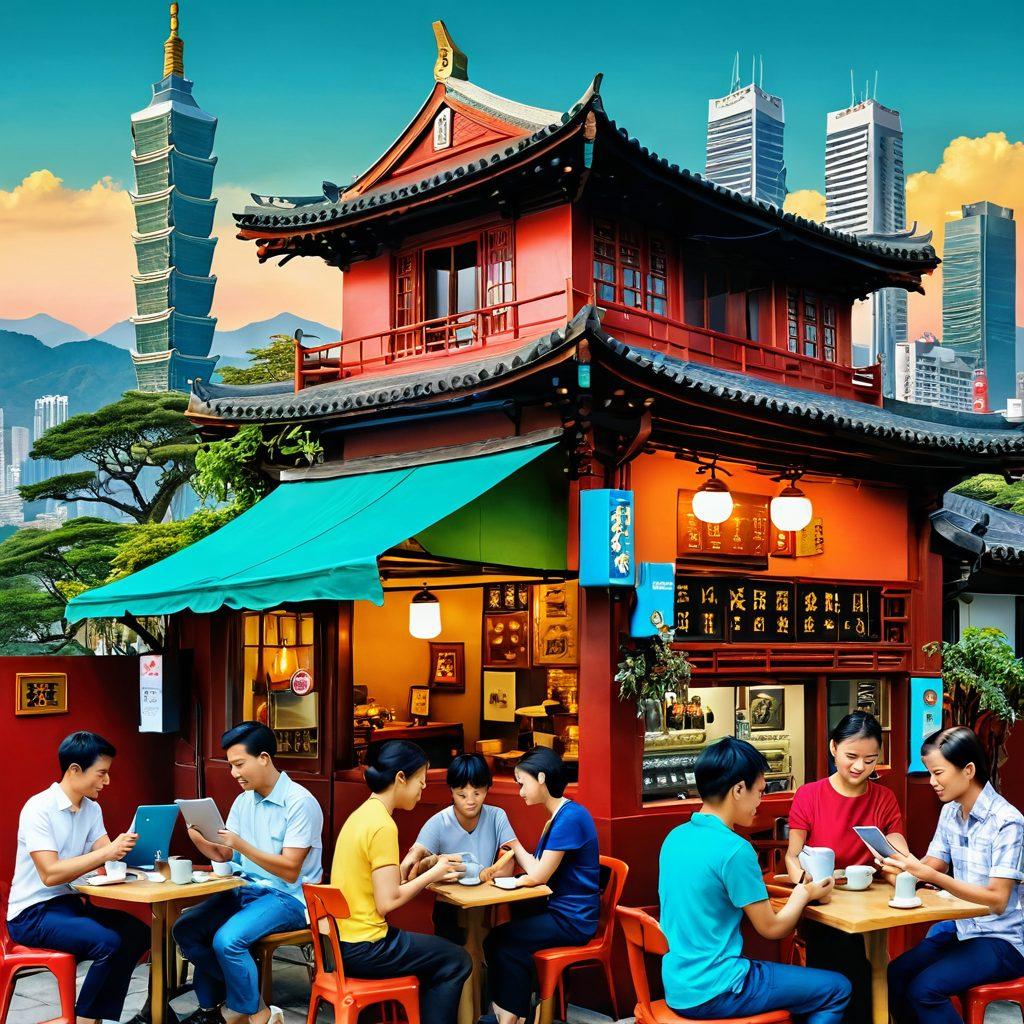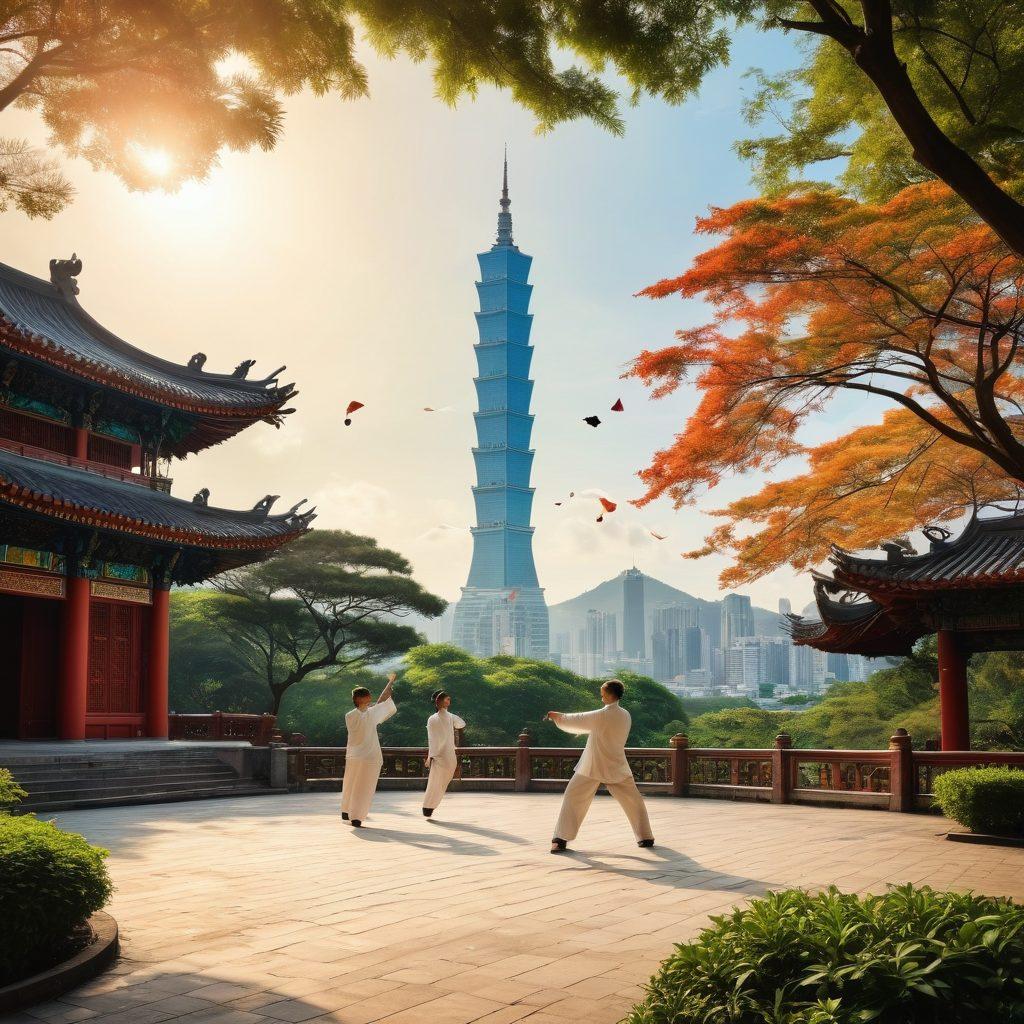Unleashing the Spirit of Taiwan: A Deep Dive into Tai Chi, Culture, and Entertainment on Screen
Taiwan is a gem of a place, rich in history and teeming with vibrant culture. Among its timeless practices, Tai Chi stands out as a mesmerizing blend of mind and body synchronization. Whether you're strolling through the serene parks of Taipei or watching a majestic sunset over Taroko Gorge, you can see the fluid movements of Tai Chi practitioners, effortlessly flowing with grace. But have you ever wondered how this ancient art form has found its way into Taiwan's digital landscape? Join me as we explore the harmonious intersection of Tai Chi and Taiwan's cultural landscape, particularly how it's influencing the realms of Tai media, entertainment, and beyond.
When we think of Tai Chi, images of slow, deliberate movements come to mind, often set against peaceful backdrops. Yet, there’s more to this practice than meets the eye. Tai Chi is not just a form of exercise; it's a way to cultivate mental clarity and physical health. In Taiwan, it embodies the spirit of tranquility that permeates daily life. As you sip on a cup of bubble tea while watching a Taiwanese TV show, consider how Tai Chi influences the characters and stories portrayed onscreen. Could a slow-motion Tai Chi battle scene serve as a metaphor for the inner struggles we all face?
Taiwanese TV and media have cleverly woven Tai Chi into their storytelling, creating a distinct flavor that resonates with both locals and global audiences. Take, for example, a popular Taiwanese drama where characters navigate life’s complexities through the lens of Tai Chi philosophy. Quotes from the series, like "In every movement, there is a lesson; a flow for every struggle," leave a lasting impact. It’s fascinating how these principles become a narrative device, reflecting the collective ethos of Taiwan's culture and the significance of staying grounded amid life’s chaos.
In recent years, with the rise of streaming platforms and digital television, viewers have a broader spectrum of Tai Chi representations at their fingertips. Imagine being able to catch live TV broadcasts of Tai Chi workshops, or tuning in to video content that introduces you to its meditative benefits. This innovative approach helps educate a new generation about the importance of Tai culture while simultaneously making it more accessible. How many forms are there? What can a beginner learn from an online Tai Chi class? These questions drive engagement and curiosity, propelling a revival of interest in this art form.
As we delve deeper into Taiwan's cultural landscape, it's clear that Tai Chi acts as a bridge connecting the old and the new, the traditional and the contemporary. From captivating cinematography showcasing Tai Chi in nature, to media channels highlighting its benefits, the art form is evolving. For enthusiasts and newcomers alike, the journey into Tai Chi can transform more than just your physical state; it could enhance your appreciation of Taiwanese culture as a whole. So, whether you're casually scrolling through a smartphone on your way to work or watching leisurely Tai entertainment on a weekend, consider how Tai Chi may sync with your own inner rhythm. Are you ready to embrace the flow?
From Traditional Practices to Modern Screens: The Evolution of Taiwanese Media
Taiwan is a land pulsating with rich traditions and vibrant modernity—a juxtaposition that becomes particularly fascinating when we explore the evolution of Taiwanese media. From the graceful movements of Tai Chi, a practice steeped in history and culture, to the fast-paced realm of digital television, Taiwan showcases a dynamic interplay of old and new. Have you ever wondered how traditional practices can find a home in modern media? Join us as we embark on this captivating journey through the landscape of Tai culture and Tai entertainment—where ancient wisdom meets contemporary storytelling.
Tai Chi, often described as "meditation in motion," serves as a powerful metaphor for the evolution of Taiwanese media. This ancient martial arts practice embodies balance and flow, much like the way traditional Taiwanese stories have made their way into the hearts of audiences through modern mediums. With the rise of streaming services and digital television networks, how does this ancient art form translate into engaging content for today’s viewers? It’s through ingenious cinematography, captivating narratives, and the universal themes embedded in Tai culture that resonate with viewers—turning Tai Chi from a personal health practice into a collective experience shared on screens across the globe.
Taiwanese TV shows have always had a unique flair, and now, they are more accessible than ever, thanks to the explosion of online streaming platforms. Imagine sitting down on a cozy evening, curled up with a bowl of popcorn, and diving deep into the colorful tapestry of Taiwanese storytelling. Whether it’s a drama series that deftly weaves in elements of Tai culture or a light-hearted comedy that showcases the everyday lives of people in Taiwan, there’s something for everyone. This reflects the broader trend of television programming evolving to embrace diverse formats while holding onto its locales and traditions.
Moreover, broadcasting in Taiwan has transformed dramatically over the years. What used to be limited to live TV and a handful of TV networks has now exploded into a myriad of media channels that provide not only entertainment but also informative content steeped in local customs and practices. The past few decades have birthed a new era of Taiwanese media production, where filmmakers and content creators harness the power of technology to revitalize old narratives, making them relevant and appealing to today’s audience. How does this reshaping of media influence viewers’ perspectives on traditional practices like Tai Chi? The answer lies in how these practices are portrayed—never a relic of the past, but a vibrant part of contemporary life.
So, what is the secret sauce behind the success of Tai entertainment in today’s digital landscape? The answer lies in relatability, authenticity, and the deep connection that viewers feel with the characters and stories unfolding before them. As Taiwanese creators skillfully merge their age-old cultural practices with the latest filmmaking techniques, they invite us all to reflect on our own identities. This is a powerful call for not just entertainment but for understanding and appreciating the roots that bind us. What are your thoughts on the interplay between traditional culture and modern entertainment? As we sit at the crossroads of Tai Chi and Tai media, it’s clear that this evolving narrative continues to capture hearts and minds while reminding us of the beautiful complexity that is Taiwan.
Capturing Taiwan's Essence: The Influence of Tai Chi on Entertainment and Film
Taiwan is a land of rich cultural heritage and vibrant traditions. One of the most profound aspects of this culture is Tai Chi, an ancient martial art that embodies grace, balance, and mindfulness. But what happens when this martial art finds its way onto screens across the globe? What story do we tell when we blend Tai culture with the realm of Tai media and Tai entertainment? This intriguing intersection creates a captivating narrative that displays not just the physical elegance of Tai Chi but also the soul of Taiwan itself, framed within the captivating world of television and film.
Tai Chi has a unique way of telling a story without words. Each slow, deliberate movement resonates with profound wisdom and depth, inviting viewers to seek tranquility and strength within themselves. As we see Tai Chi being featured in various television shows and films, it adds a layer of authenticity that enriches the narrative. But why has Tai Chi become such a hot trend in entertainment? Perhaps it's the tranquil aesthetics or maybe it's the universal messages of harmony and balance that appeal to audiences worldwide. Whatever the reason, its influence on digital television and online streaming has blossomed in recent years, as filmmakers and producers recognize the allure and significance of this practice.
Imagine a scene where the protagonist stands atop a scenic mountain in Taiwan, surrounded by clouds while performing Tai Chi in the early morning mist. It captures not just a moment of meditation, but a connection to nature that resonates deeply within Taiwanese culture. As audiences tune into Taiwanese TV shows and films, they are not just entertained; they are transported to a world wherein every movement and gesture represents a legacy. This deeper understanding of Tai culture through cinematography cultivates a greater appreciation for Taiwan's beautifully woven tapestry of life and arts, which is embraced by various media production across the island.
Moreover, how does the growth of streaming platforms affect this cultural exchange? With online streaming services dominating the media landscape, Tai Chi isn’t merely relegated to niche TV networks or traditional broadcasting anymore. It's available to capture the interest of anyone, anywhere in the world, creating an unprecedented global fascination with Taiwanese culture. This evolution sparks conversations on social media and fuels interest in not just Tai Chi, but the entire Taiwanese way of life. Platforms can now showcase Tai Chi's value not only as a form of exercise but as a lifestyle that promotes well-being and mindfulness, making it more relatable to a wider audience.
Ultimately, the captivating nature of Tai Chi and its role in Taiwan's entertainment sector illuminates the essence of the island's culture. It acts as a bridge, connecting stories told on screen to the ancient practices that have shaped Taiwanese lives. So, the next time you're enjoying a series or film featuring Tai Chi, consider the journey it undertook to reach you. Think about how the rhythms of Taiwan's spirit—a blend of heritage, artistry, and innovation—dance across television programming, enriching entertainment and inviting everyone along for the ride. Are you ready to embrace that experience and discover what more Taiwan has to offer?


